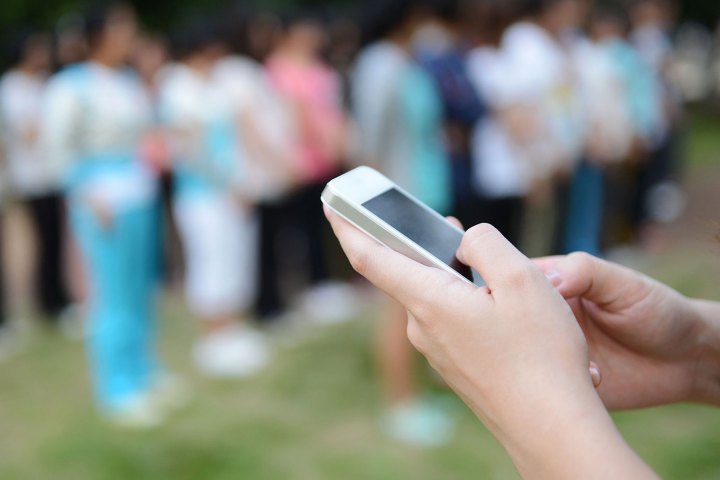
“(We’re like) a rat gorging on sugary foods well past satiety,” explained Raefer Gabriel, the CEO of smartphone app builder Delvv.
Our dependence arises as a growing pattern of behavior that ultimately takes on a life of its own, he believes. We begin down a slippery slope as we start using our phones to “feed that anticipation and desire for information, particularly unpredictable information,” stoking our brain’s dopamine center.
Sounds a lot like how addictions form, doesn’t it?
Digital Trends recently sat down with Gabriel to discuss how smartphone addiction could be affecting both productivity and our overall quality of life. The heart of the problem, he said: As we continue to look for more and more information, more often than not we look for it in our phones and within mobile apps.
“A major change in the last two or three years,” he says, “has been the increased use of adaptive, personalized feeds in social media” that give us “more incentive to over-consume.” After all, Facebook has to keep you coming back somehow, right? And all of this, Gabriel says, “feeds back into that dopamine loop and reinforces addictive behavior patterns.”
Perhaps the most alarming aspect of this addiction is its biological basis — unlike alcohol or drug addictions, which are predicated upon a chemical effect, we’ve managed to train ourselves to release dopamine by seeking and obtaining bits of information. Indeed, Gabriel says, our dependence upon smartphones can be compared to a gambling or sex addiction.
And because our addiction is a biological pattern, it may be hard to break.
“Interrupt the feedback loop and you’ll see withdrawal symptoms.”
Not everyone is equally affected by smartphone addiction, nor are all apps created equal when it comes to enabling this behavior. “Millennials are most strongly tied to their smartphones and purport to be less affected by information overload compared to older generations who were not born into the mobile era,” said Gabriel.
As to whether smartphone addiction is actually making us less happy, Gabriel admits that there isn’t quite enough evidence to give a satisfactory answer quite yet, but he doubts that our phones are making us happier. “While up to a point, ease of information access makes us more productive and able to get more done in our lives, the extra leisure time is scarcely valuable if we use it all up surfing Facebook and engaging in other pleasure-seeking behaviors,” he said. “There’s clearly a difference between pleasure in the moment vs. true happiness in life.”
So what’s to be done? What does the ideal situation look like in the CEO’s eyes? “Efficient smartphone use would entail getting to the optimal amount of ‘digital connectedness’ and minimizing use of your phone as a coping device,” Gabriel said. “We think that in a few years time the constant stream of interruptions and cues driving our pleasure-seeking behavior will eventually come to be seen as rude, crass, and passe,” if it doesn’t already.
“We clearly need better tools for managing interruptions and prioritizing important information. Hopefully the major mobile platforms will take more initiative in this direction.”
But ultimately, Gabriel concluded, “as with any pleasure-seeking behavior, people need to see a downside — they need to want to change. For some people, they may just need to understand better how much of their time they are losing to consumption of ‘junk food’ information. For others, we need clear, forceful evidence — a better understanding of the negative effects of information overindulgence on the brain and pleasure centers.”
It may take some time and a whole lot of education, but maybe one day, we’ll start weaning ourselves off of our cellphones.
